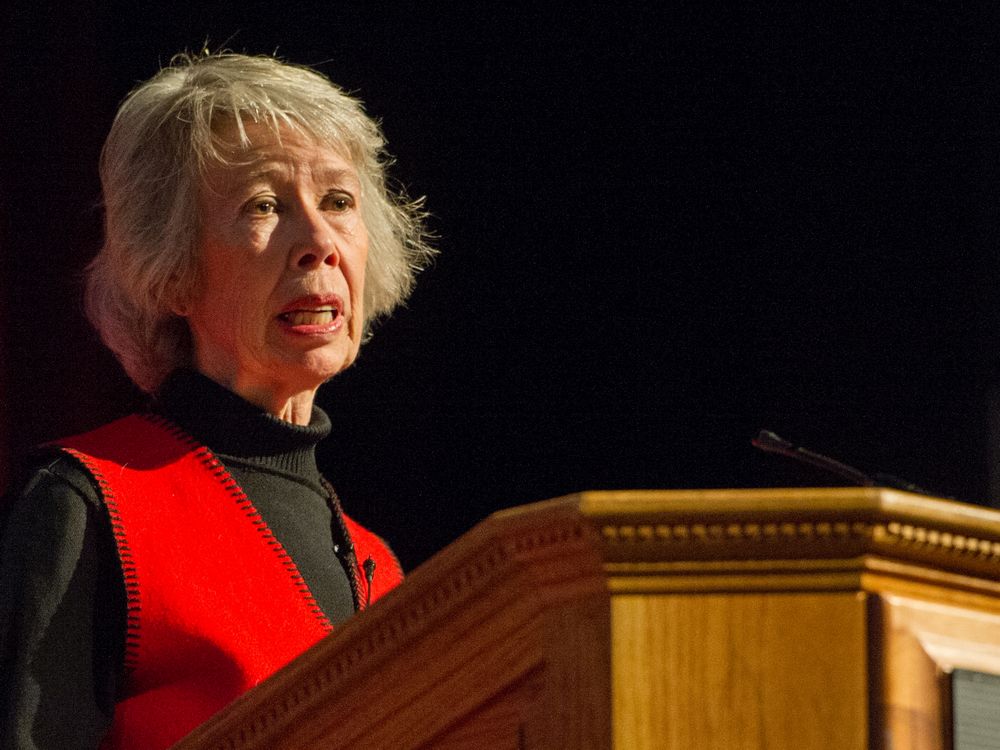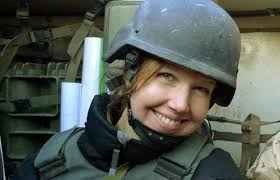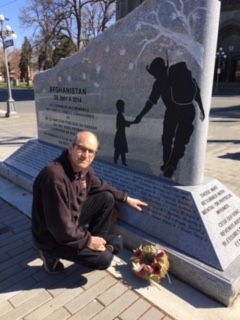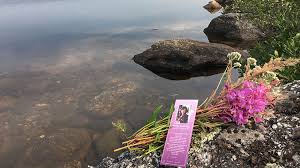
I didn’t recognize her immediately. I should have. But, back in 2013, while attending an annual general meeting of The Writers’ Union of Canada in Ottawa, a woman approached me and she asked if we could share a coffee and some conversation. Since most of the AGMs I attend are often about reflection, I naturally agreed. That’s when I realized who this woman was.
“I’m Catherine Lang,” she said, “the aunt of Michelle Lang, the Canadian journalist killed in the Afghanistan War.”
My expressions of condolence were heartfelt and Catherine was generous in her gratitude of them. But she had greater expectations from our chat than just my recognizing the loss of her adult niece.

In 2013, when we had coffee, four years had passed since Michelle had died overseas. On assignment for the Calgary Herald, covering Canadian troops in the Afghanistan War, on Dec. 30, 2009, Michelle was travelling in an armoured vehicle when it hit a roadside improvised explosive device. She and four Canadian troops died in the resulting IED explosion.
“I wonder if you would help me get Michelle’s story told,” Catherine Lang asked. “I’d like to write it for our family.”
Once she’d explained that she wanted to preserve the memory of her niece and her work as a journalist covering war, so that the family would always remember, I asked, “Why stop there?” I suggested that since she, Catherine, was brave enough to approach me with the idea, why not take it a step further? Why not assemble her research, her photographs and the words she planned to write about Michelle, and then try to get it published for more than only the Lang family.

“Michelle’s accomplishments as a journalist are important for the rest of us to learn and recognize too,” I said.
I was reminded of my meeting with Catherine Lang, this week, when I read a story by Reporters Without Borders. The international watchdog noted that 49 journalists had been killed on the job this year. Strangely, the story went on to say that the statistic represented “a 16-year low and a 44 per cent drop from the number of journos who died in 2018.” Granted, part of the reason for the decline was “due to the decline of reporters killed in war zones.”
Which means either fewer independent journalists felt secure enough to venture into war zones, or agencies with staff war correspondents were not prepared to risk sending them. Regardless, the absence of journalists and journalism in war zones or hot spots or places where “the troubles” exist, I believe, poses an even greater threat than does the violence.
“It’s vitally important that journalists be there,” explained Sandra Lang, Michelle’s mother, last month to Canadian Press. “It’s a terrible risk, but democracy depends on them.”
Reporters Without Borders offered an even more chilling trend in their statistics this week. While deaths of journalists declined in war zones, they said, the number of journalists killed in nations that are supposedly at peace remained alarmingly high. RWB reported, for example, that 10 journalists were murdered in Mexico in 2018-19.
Meanwhile, the regimes in power in China, Saudi Arabia and Egypt were among the worst for jailing journalists – 389 worldwide, an increase of 12 per cent – for merely attempting to report the news. And when you stir in the kind of rhetoric flying around Donald Trump rallies over the past three years, when epithets such as “fake news” or “enemies of the people” are routinely thrown at journalists, well then you end up with mobs suspicious of anybody with a camera or a microphone. Or worse, an environment in which reporters fear for their lives.
I found it astounding that at the bottom of the Reporters Without Borders website, as part of its mission statement, the website says that its journalists “report the news in 26 languages in 22 countries where a free press is banned by the government.” In other words, the journalists in those places carry on their reporting under constant threat of imprisonment or worse.

In contrast, a couple of summers ago, the government of Saskatchewan announced that it had negotiated with Dene in the far north-eastern part of the province to name a body of water there, Lang Bay on Burnett Lake, in honour of fallen journalist Michelle Lang. It’s one of 4,000 lakes, rivers and other geographic features in Saskatchewan named to recognize servicemen and women, police officers and other first responders killed in the line of duty.
“It just feels significant,” Catherine Lang said visiting the lake, “significant in an awesome way.”
The 10th anniversary of Michelle Lang’s death in the service of her newspaper, her profession and her country, is on Dec. 30, 2019. Her aunt is still working to publish Michelle’s story. And I’ll continue to urger her on.
The survival of this profession may depend on that story more than ever before.